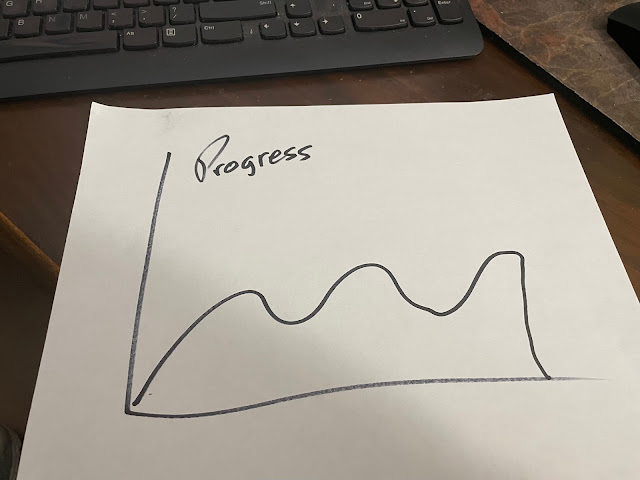Tonight I'm pondering the thought: Why do so many Greek students fail to make serious gains in their knowledge and use of the language? If I were to illustrate the ideal learning curve and the progress you should be making in Greek, it would look something like this.
 |
| State of the art graphics. |
You're consistently making progress. Yes, there are times when there will be plateaus and you'll get lackadaisical with your studies, but ideally you will want to be making steady progress. But that's not how most people's journey looks. More often than not, it looks more like this:
You start to make progress and then begin to fall off a bit and then get reinspired and back on track. But eventually the dominos start doing their thing and you fall off the wagon for good. Or even worse, you peak in your beginning Greek class and then bottom out almost immediately after graduation.
I realize that some people today thinks it's all about methodology. But the fact is, whether you use the grammar-translation approach or the living language approach, or use a beginning grammar that has 200 pages or one that has 600 pages, they all work. The only caveat is: if you push yourself hard enough. The real problem is not as easy to fix. And that's patience and perseverance. It would be nice if there was something I could say to you that would help you follow through on those two things or some sort of hack I could give you but, truthfully, there's nothing. The only thing I can do is try and keep this saying in the forefront of my mind, and that is: Keep your commitments to your commitments. Other than that, I can provide you with the tools for you to keep on learning (see my Greek Portal above). But at the end of the day, it's up to you.

